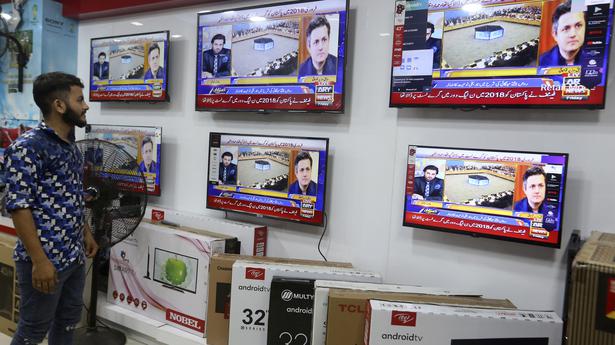
Pakistan stays on ‘grey list’ subject to on-site check
The Hindu
The FATF designation restricts a country’s international borrowing capabilities; can scare away investors and creditors
An international watchdog said on Friday that it will keep Pakistan on a so-called “grey list” of countries that do not take full measures to combat money laundering and terror financing but raised hopes that its removal would follow an upcoming visit to Islamabad to determine its progress.
The announcement by Marcus Pleyer, the president of the Financial Action Task Force, was a blow to Pakistan’s newly elected government, which believes that it has mostly complied with the organisation’s tasks.
Expectations were high in Pakistan that Financial Action Task Force (FATF) would announce its removal from the list at Friday’s meeting in Berlin.
Instead, Mr. Pleyer said an on-site inspection by FATF in Pakistan would take place before October, and that a formal announcement on Pakistan’s removal would follow. He said FATF is praising Islamabad for implementing the organisation’s action plans — a clear indication that Pakistan is moving closer to getting off the “grey list.”
“Pakistan’s continued political commitment to combating both terrorist financing and money laundering has led to significant progress,” FATF said in a statement. The country’s efforts were sustained, it said and added that Pakistan’s “necessary political commitment remains in place to sustain implementation and improvement in the future.”
Pakistan’s foreign ministry said FATF reviewed Pakistan’s progress in countering terror financing during a four-day meeting this week and “acknowledged the completion of Pakistan’s” action plans. It said a visit to Pakistan was authorized as a final step toward exiting from the FATF’s “grey list.”
Also on Friday, FATF removed Malta from its “grey list” but added Gibraltar. Mr. Pleyer urged Gibraltar to take steps in the right direction, including focusing on the gatekeepers to the financial system.

The 29th edition of the Conference of Parties (COP29), held at Baku in Azerbaijan, is arguably the most important of the United Nations’ climate conferences. It was supposed to conclude on November 22, after nearly 11 days of negotiations and the whole purpose was for the world to take a collective step forward in addressing rising carbon emissions.










